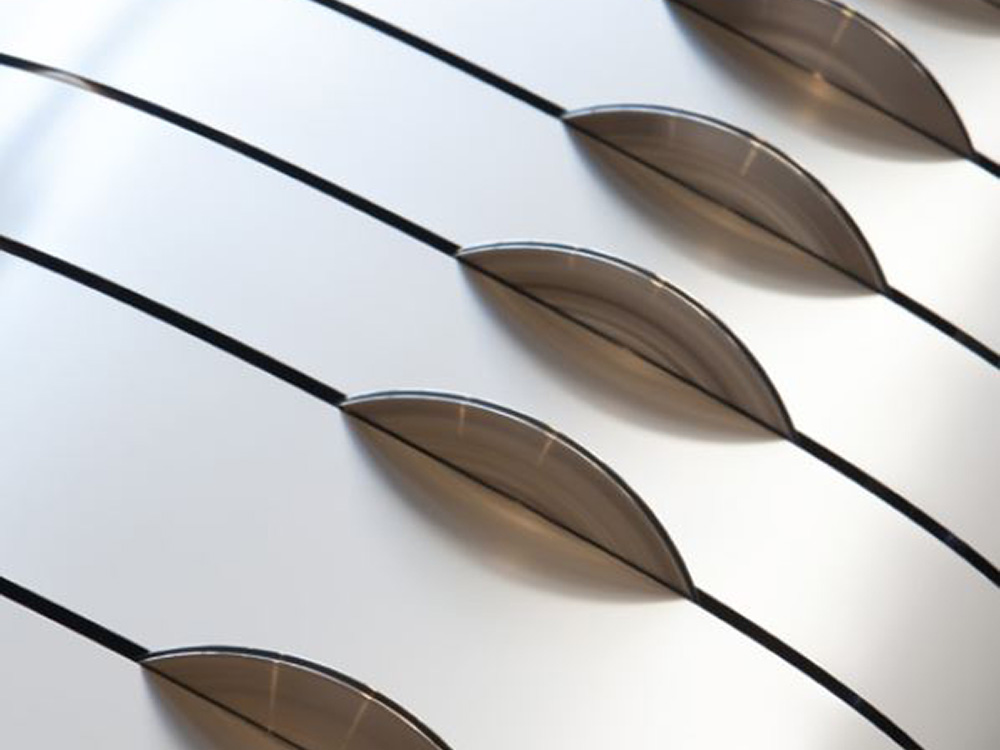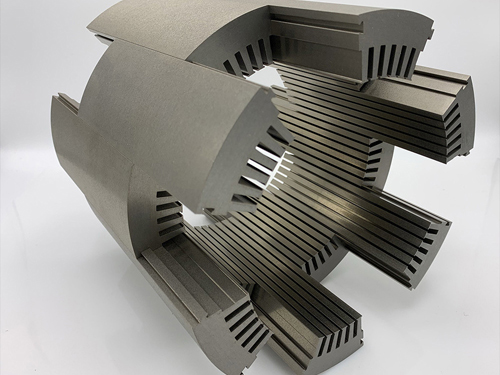Technologies: Many factors lead to better motors
The lamination stack is a core element of the electric motor. Our mission is to work with our customers to improve the lamination stack, and thus the electric motor. Due to the many ways in which the lamination stack can have an influence, many aspects must be considered holistically.
Importance of the lamination stack for the electric motor
The interplay of many technological and manufacturing considerations produces an optimum result for the electric motor. The lamination stack is one of the core elements and is important for a number of functions. Not only electrical and magnetic properties, but also mechanical properties such as strength, assembly, and integration as well as vibration, noise, and cooling behavior can be significantly influenced.
The right production technology and degree of industrialization
Our task is to develop the right, suitable, future-oriented production technology with our customers. This starts with the consideration of the lamination stack and then proceeds to its feasibility and the integration of functions, finally concluding with assembly and the motor. Only a holistic view leads to optimal solutions.
This is how our customers benefit:
Increasing performance: We achieve narrower tolerances for our customers. Narrower tolerances make assembly easier and performance increases. For example, by creating a smaller air gap between the stator and the rotor.
Efficient manufacturing: We already consider how to automate and later install the lamination stack in the development phase.
Amplifying the magnetic field: We help to use higher-quality materials such as NO10 and GO20 and to punch and join them for series manufacturing.
Improved magnetic flux and quieter motors: By bonding the laminations over the entire surface, we can create more intricate shapes. This allows the magnetic flux to be guided more accurately. Full-surface bonding also reduces vibration and noise.
Long grinding cycles: We work together to implement new tooling concepts suitable for series manufacturing. The aim is to achieve precise and long-lasting production as well as a 0 ppm rate.
Industrialization of lamination stack production: We advise our customers and develop new machine concepts for highly automated and fully automated production.
Direct and future-proof. We support our customers from the idea for new lamination stacks to industrialization at our company or on their premises.
Our specialist will be happy to answer any questions you may have.
Materials
Discover the wide range of possible electrical sheet materials, processed with precision from 0.35 mm to 0.05 mm and suitable for series manufacturing. Our advanced tooling concepts and technologies open up new application possibilities.
Bonding varnish (Backlack)
Find out how you can increase the performance of your electric motors and reduce the use of materials with advanced bonding varnish (Backlack) technology – fast bonding in minutes. Our tried-and-tested process promises maximum precision and process reliability.
Stator segmentation
The segmentation of the asynchronous motor enables precise manufacturing as well as material savings and leads to environmentally friendly production. Increase the efficiency of your motors while reducing your environmental footprint.
Precision package
Increase the performance of your small segmented electric motors with our precise electro sheet stacks, optimized for tightest tolerances and highest efficiency. Find out how our expertise can take your engine to the next level.
Axial flux motor
Experience the revolution in the area of axial flux motors – high power density with low weight. With SWD, you benefit from the latest manufacturing processes and unsurpassed quality in lamination stacks.
Complementary technologies
Coordinating the production chain with the component brings cost advantages. In so far as possible, not only the component, but also the interfaces in the motor and in the process should be known and optimized. Find out about our complementary technologies: Welding, drilling precision shape holes, and mechanical processing.






